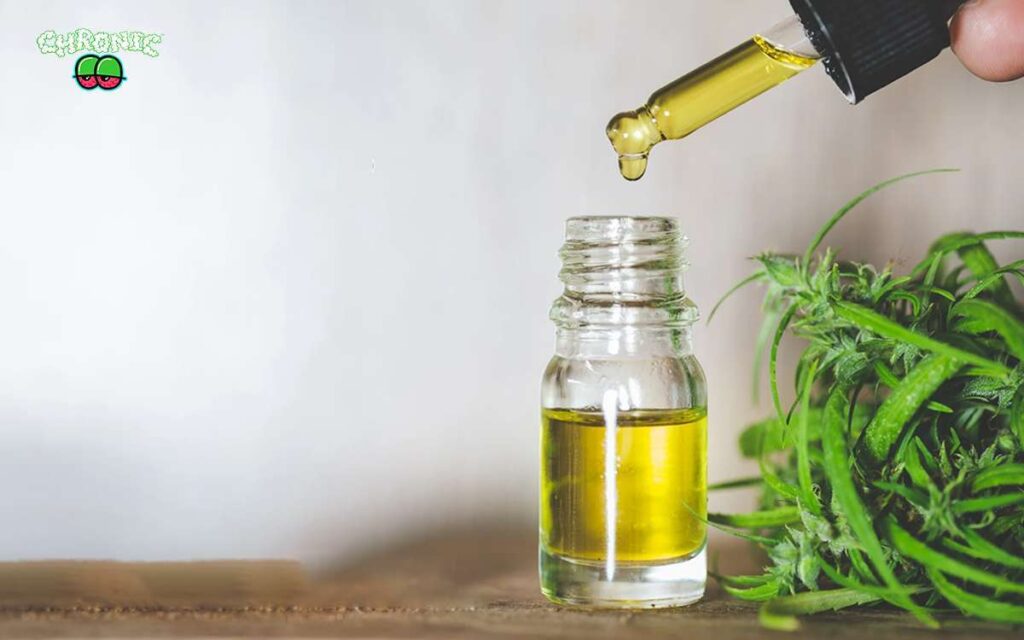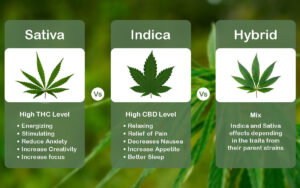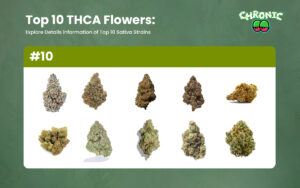Typically, CBD oils are prepared by mixing a pure CBD extract with other oils, most commonly coconut or hemp seed oil, which come in various strengths. CBD oil is mainly used for its health benefits, such as lowering stress levels, relieving pain, and treating insomnia.
Additionally, its legal status often varies across countries or states, depending on the THC levels contained in the particular CBD oil. Therefore, consumers or potential users should check the legality of such products in their market before purchasing CBD oil.
Is CBD oil legal in the U.S.?
In the United States, the legality of CBD oils is determined by their source and THC concentrations.
CBD products derived from Hemp
The federal legalization of hemp-derived CBD products was achieved through the 2018 Farm Bill. This bill allows CBD products containing no more than 0.3% THC, the psychoactive ingredient in cannabis.
As a result, CBD oils made from hemp are legal in most U.S. states. However, the use of CBD in food and beverages is generally prohibited at the federal level.
CBD products derived from marijuana:
The legality of CBD oils derived from marijuana plants (which contain more than 0.3% THC) remains more complex. Under U.S. federal drug laws, cannabis is classified as an illegal narcotic. However, there are exceptions for medical use and possession in certain states.
Consider Reading: Get to Know More About CBD Weed
In jurisdictions where cannabis has been legalized for either medical or recreational use, the sale and marketing of marijuana-derived CBD oils are permitted.
State Laws:
While it is federally legal to produce CBD oil derived from hemp in the U.S., individual states may impose additional regulations. For example, states like Colorado and California have passed laws allowing the use of both hemp- and marijuana-derived CBD oils.
In conclusion, hemp-derived CBD oil is generally considered legal across most U.S. states. However, it is crucial to research the specific laws of each state and ensure that the THC content is below 0.3%.
Full State by State Guide of the legal status of CBD Oil
Here is a state by state guide regarding the legal status of the CBD oil in the U.S..
| State | Legal Status | Notes |
| Alabama | Conditionally Legal | Legal for medical use, THC limit of 0.3% |
| Alaska | Legal | Both hemp and marijuana-derived CBD are legal |
| Arizona | Legal | Fully legal for both medical and recreational use |
| Arkansas | Legal | |
| California | Legal | Legal for all uses, including medical and recreational |
| Colorado | Legal | Legal for both medical and recreational use. |
| Connecticut | Legal | Legal for both medical and recreational use. |
| Delaware | Legal | |
| Florida | Conditionally Legal | Legal for medical use only |
| Georgia | Conditionally Legal | Legal for medical use with restrictions |
| Hawaii | Conditionally Legal | Legal for medical use; marijuana-derived CBD is illegal |
| Idaho | Illegal | All CBD products are illegal |
| Illinois | Legal | Legal for all uses |
| Indiana | Conditionally Legal | Legal for hemp-sourced CBD with THC below 0.3% |
| Iowa | Conditionally Legal | Legal for hemp-derived CBD, medical marijuana CBD allowed |
| Kansas | Illegal | No legal status for CBD. |
| Kentucky | Conditionally Legal | Legal for medical use with hemp-derived CBD |
| Louisiana | Conditionally Legal | Legal for medical use |
| Maine | Legal | Legal for all uses |
| Maryland | Legal | Legal for all uses |
| Massachusetts | Legal | Legal for all uses |
| Michigan | Legal | Legal for all uses |
| Minnesota | Conditionally Legal | |
| Mississippi | Conditionally Legal | Legal for medical use with specific restrictions |
| Missouri | Legal | Legal for all uses |
| Montana | Legal | Both medical and recreational use are legal. |
| Nebraska | Conditionally Legal | |
| Nevada | Legal | Legal for all uses |
| New Hampshire | Conditionally Legal | Medical use only. |
| New Jersey | Legal | Legal for all uses, except marijuana-sourced CBD recreationally |
| New Mexico | Legal | Both medical and recreational use are legal. |
| New York | Legal | Legal for all uses except recreational marijuana-derived CBD |
| North Carolina | Illegal | No CBD products from marijuana allowed |
| North Dakota | Conditionally Legal | Medical use only, with higher THC allowed for qualifying patients. |
| Ohio | Legal | Legal for all uses |
| Oklahoma | Legal | |
| Oregon | Legal | Both medical and recreational use are legal. |
| Pennsylvania | Conditionally Legal | |
| Rhode Island | Legal | Both medical and recreational use are legal. |
| South Carolina | Legal with restrictions | Low-THC CBD allowed for specific medical conditions. |
| South Dakota | Conditionally Legal | Medical use only. |
| Tennessee | Legal with restrictions | Low-THC CBD products allowed for specific medical conditions. |
| Texas | Conditionally Legal | Legal with restrictions for medical use |
| Utah | Legal with restrictions | Medical use only. |
| Vermont | Legal | Both medical and recreational use are legal. |
| Virginia | Legal | Both medical and recreational use are legal. |
| Washington | Conditionally Legal | |
| West Virginia | Legal | Both medical and recreational use are legal. |
| Wisconsin | Conditionally Legal | |
| Wyoming | Legal | Legal for all uses |
Every state has its own stance on CBD; some have legalized both hemp CBD and marijuana CBD whereas others have legalized only hemp CBD or allowed its use for medical reasons only.
After extending their temporal strategies for new promotion approaches, some states, like Idaho and North Carolina, developed rigid rules against the use of CBD, whereas some states, for instance, California and Michigan, do not recognize any such restrictions for medical or recreational CBD usage.
Is Hemp oil legal in the U.S.?
While hemp oil is allowed to be used in the U.S. after the farm bill was passed, its legality elicits some concern as it tends on the particular type of hemp oil in question and the contents that it possesses.

States where CBD is illegal
At present, the production of THC midcontinent CBD (cannabidiol) derived from hemp measuring 0.3% in total is viewed as legal in all 50 states due to the enactment of the 2018 Farm Bill.
Not all states however remain permissive as some put stricter measures if not total ban on any and all CBD products especially edible and non-edible consumables. The following state legislatures have traditionally been states with more severe or unbearably complex laws regarding CBD.
- Idaho: Us CBD oil is virtually outlawed in Idaho especially in regard to edibles and beverages.
- South Dakota: Medical marijuana passed only in 2021 and there are still many restrictions concerning CBD.
- Iowa: Not dissimilar, they allow usage of CBD, but there are restrictions with regards to THCA levels in the products.
- Wyoming: CBD from hemp is considered legal under most circumstances but its sale and use especially in foodstuffs is limited.
- Nebraska: Under 0.3% THC content, CBD products are approved for sale in the state. And historically the state has proposed restricting the use of CBD to treatment purposes only.
- Kansas: Kansas has primarily an ambiguous position towards CBD and imposes certain limitations on its availability and use.
In addition, there could be restrictions in other states regarding the amount of certain formats of CBD that can be utilized by an individual (for example edibles, smokes etc.), the concentration of THC levels permissible or the minimum age of the user.
Is CBD legal in all states?
Cannabidiol, commonly known as CBD, is manufactured from the hemp-variation of cannabis sativa plant family, and the legality of its use has been to several parts of America edged closer since the 2018 Farm Bill was enacted.
The legislation also permits the cultivation and the manufacture of any product derived from hemp that had 0.3% – a value which is recognized as the cut-off point of the psychoactive element present in marijuana. Nevertheless, the state of Colorado and its subdivisions have contrasted opinions regarding a wide range of issues relating to CBD, its commodities, processors and sellers.
More: Where Is Edibles Legal? A Guide To All 50 States
In the majority of the countries, taking cannabinoids from hemp where CBD is the dominant compound is generally accepted as long as it is within the limitations set by the federal law with few states however going to the extent of repealing more forbidding laws.
In this regard, states like Idaho, Nebraska, and South Dakota have been quite apprehensive about the introduction of CBD products even to an extent whereby the law says these products are legal, in fact, in those states, CBD products are illegal.
While medical-marijuana-qualifying states could constrain reasons for which CBD can be used, namely to therapeutic uses, the most potent of these forms, CBD oil, could be used without regulating the content level of THC.





Pingback: What is Cannabis Indica? It's Strains & Benefits - Chronic THCA
Pingback: What is Infused Cannabis? Gummies, Flowers, and Their Legality - Chronic THCA